EXCLUSIVE: Interview With Director S. Craig Zahler
Filmmaking wunderkind S. Craig Zahler has been on a serious hot streak since his debut feature, Bone Tomahawk, appeared seemingly out of nowhere in 2015. His latest movie, Dragged Across Concrete, was released in March, and you should really watch it as soon as you possibly can – it’s awesome. With the movie gradually releasing in different territories around the world, I was given the sublime opportunity to interview Zahler over the phone. I only had 15 minutes, but Mr. Zahler didn’t disappoint: He’s articulate and thoughtful, and made sure not a single second was wasted.
I’m interested in hearing about your screenwriting style and process. How do you approach writing scripts?
My writing process is one of constant discovery, so the way I do it is that I surprise myself each day. I landed on my current method of writing when I wrote this gigantic fantasy tome over 500 consecutive days. This was 2002 into 2003. I figured out the best way to write was to have a general idea of what the characters are trying to accomplish, and have a real good sense of who they are and what they’ll do in different situations, and then I’m writing towards those doors. Like Person A wants to get a magical sword, and that’s what I’m writing towards, and then I’m throwing obstacles in the way. The more alive the character is, and the better you understand the character, the more authentic everything is going to be when you put it together. So everyday for me is surprises and it may not be a big plot surprise, it may be a surprising reveal about somebody’s past that lets you know more about that character. You know, an offhanded remark that colours how you will look at another scene, or how you look at a character.
While writing screenplays, do you consult friends/collaborators for notes? Or do all the notes come from studio middle-management?
The scripts that I write, that I’ve turned into my movies, did not really receive notes or anything that I did not write. Those are essentially my drafts up on the screen. Maybe just a point of clarification, or making one thing a little clearer, but when I finish writing…that thing I’ve written is the movie you’re watching. There’s very little change other than a couple of logistical things, or just further clarifying something at some point.
Your movies aren’t made for a typical mainstream audience. Do you feel like they’re sometimes taken for granted?
I don’t know if I look at something as being taken for granted. I suppose, for a lot of people out there, they will look at a movie and look at certain metrics. You’re gonna look at, what does it say on Rotten Tomatoes and what does it say on IMDb in terms of a popular response and a critical response. In that way, my movies have been pretty well received, but I come from a background of playing heavy metal and death metal. So if you’re the type of person who thinks it’s worth putting time into a death metal band, a black metal band, a heavy metal band, a synthesizer project, and a Western novel that maybe only six or seven thousand people are gonna read, the numbers of how many people will see a movie are completely incomparable. I mean, I don’t know what the figure would be, I don’t know how many people have watched Bone Tomahawk, but I know that the last time I looked on Amazon, more people have reviewed that movie than Avatar.
So I don’t have a sense of how many hundreds of thousands of people have seen my movie, but the movies are reaching far more people, critics and viewers alike, than any of my other pieces do. So scaled against a movie which opens on 2,000 screens and makes a billion dollars, my movies aren’t reaching that many people. Scaled against a book that will take me a similar amount of time to write, and that 8,000 people will read, my movies are reaching a lot of people. So I don’t feel taken for granted, I feel it’s reaching a tonne of people, especially with how divergent my aesthetic is, and what these movies are. My disappointment is that more people don’t see these movies on the big screen, which is where they’re meant to be seen.
Is your novel ‘Mean Business on North Ganson Street’ still being made into a movie? And with your growing reputation as a director, would you like to direct the film adaptation?
I don’t know that there’s any progress on that at this point. It was kinda tangled up with Leonardo DiCaprio’s company and Warner Brothers. And I require an amount of control that’s not gonna partner me with two other heavy hitters in terms of directing it. And it’s a novel, so the tough thing for me, and it’s not the only novel of mine that’s been adapted… The tough thing for me is the thought of taking a novel like that, which is about 90,000 words… To cut that down into a long screenplay, you would probably need to get that down to something like 30,000 words – so you’re cutting out two-thirds of what I wrote. That version isn’t possible, in my estimation, to be as good as the novel I wrote. Certainly I didn’t write it with the thought in mind of two-thirds of it being expendable.
I think the way to do a novel, and I have written something that’s novel-length that I intend to do in this manner, is to do it as a limited series. You keep everything that’s there, and there’s a tonne of freedom there, I mean I do think that there’s truth to the current quality of television beating out movies. Movies seem to be evolving, or devolving gradually towards blockbusters only with gigantic special effects that cost the amount of money that could pay for a country, or a space mission… As movies are going that way, I feel a lot more interested in stuff going out on television. But to answer your question, as far as I know it’s just sitting there, and it’s not appealing, the thought of taking it forward where I’ve gotta cut out at least 60% of it to make it a feature. So as a limited series, it would be more appealing, but I’ve already written a limited series that is better, so I’m not sure that there’s any reason for me to go back there. But I’m very fond of that piece, I don’t mean to downplay it. Certainly, in terms of tone and dialogue, it’s the piece that’s probably the most similar to Dragged Across Concrete.
Are you maintaining any sort of creative control on The Brigands of Rattlecreek? Or did you just deliver the screenplay?
I did the screenplay, and a long time ago I had meetings with Park Chan-wook, and he didn’t see the script in the same way that I did. He has a different vision for that movie than what I intended, and a different understanding for the characters that I created than what I originally conceived. In terms of visuals, he’s a compelling director, so he’s gonna go do his own thing with it, and the last version that I saw, some years ago, had a large chunk of what I’ve written that made sense to me, and then a large hunk of stuff that I haven’t written – that, to me, didn’t feel the same – but again he’s just coming from a different place. This is a filmmaker who makes overtly stylised stuff, and I come from the standpoint of… I’m a writer first, and I let the characters dictate everything rather than thinking of what would be some kind of a visually spectacular scene, or that sort of thing. So I don’t know how that thing will land, but I’m not involved with it anymore, and I hope that something interesting comes out of it.
Are there any established franchises or properties you would like to tackle? That could include sequels, reboots or remakes.
There’s one, and it’s Gremlins. I grew up on that thing, that was one of two movies that turned me from a guy who was typically frightened by horror movies and didn’t wanna see any kind of violence into someone who’s really interested in not only horror movies but special effects and that alternate reality that you get from those types of movies. So that’s one, I have a pitch ready to go, I could write at a moment’s notice. And of course, the movie would have to be done entirely with practical effects, no CG Gremlins, that would be a deal-breaker for me. I don’t think anyone’s bringing this property to me. There are other franchises that I like, I enjoy the Planet of the Apes franchise quite a bit. But yes, Gremlins is a franchise I would actually play ball with, and collaborate with whomever to get it made as long as it was a version with actual animatronic Gremlins, and I would be able to have some degree of control.
Are there any actors you’d particularly like to work with in the future?
Sure. My favourite actor of all time is Robert Duvall. I’ve gone to him for little parts here and there, I don’t know that I have the one that will land him, I also don’t know much about the guy, and what he’s looking to do at this point in his career. I refer to him regularly as the platinum standard of acting, and he is – he is terrific no matter what movie he’s in, and he just does real heartfelt work. This actor is the best we have, I can’t think of anyone who is better than him. So I hope to work with Robert Duvall at some point, I’m looking at the projects I have in my future, and there are parts I will offer him, but I’m not gonna write a part specifically for him and I don’t know that this is someone who’s gonna come on and be a supporting character in some strange piece for a few days. But I would love to work with him at some point, because he’s the best.
With R-rated cinema cautiously returning to Hollywood, do you feel there is a greater opportunity to tell your stories without conforming to PG-13 standards?
I don’t really look at what’s going on in Hollywood as having all that much to do with me. I mean, I’m talking to you from my New York City apartment in a room with my drawing boards, I’m working on my first graphic novel, and I know the future projects that I intend to do, and in terms of financing, Hollywood might get behind some of my stuff, but the perception of what is doing well in Hollywood hasn’t really affected me that much one way or another. I remember because The Brigands of Rattleborge, which is now The Brigands of Rattlecreek, when I initially had that go round which was 2006 I think… It was a Western, and people weren’t really writing Westerns at that time. Now I’ve watched, between 3:10 to Yuma, True Grit, No Country for Old Men – which I think is a great movie but I don’t really think is a Western… But all these movies which are classified as Westerns, any time there are a couple of successful ones, people think “Oh the Western is coming back” and think that they’re more financially viable, but it’s never really impacted stuff.
Dragged was written as an R-rated movie, and I didn’t neuter it in any way to make it one. The next thing I plan to do is PG, so that doesn’t even enter that conversation. But I’m just looking to get stuff done my own way. It’s cool that more R-rated movies are coming out of Hollywood, but to me the more interesting thing is… 2018 was I think probably the best year in movies since the 90s. I mean we had Mandy and The Favourite and First Reformed and Creed II and Suspiria and Ballad of Buster Scruggs, that’s a longer list of films I’m excited about in one year that I can think of since the ‘90s. So I think there’s something very interesting happening with independent filmmakers. I think that Yorgos Lanthimos is certainly the most interesting and consistently good new director to emerge in the last 20 years. And I hope Panos Cosmatos doesn’t take so long to do his third movie, I was waiting for this one for many years after his first. But I think there’s a lot of interesting stuff, auteur-driven stuff, that is quite good happening in the edges. And then occasionally there’s something good coming out of Hollywood, like Creed II or Planet of the Apes, or something like that.
Dragged Across Concrete is currently available on video on-demand in the United States, with a Blu-ray release slated for the end of the month. It also hits U.K. cinemas on April 19th.
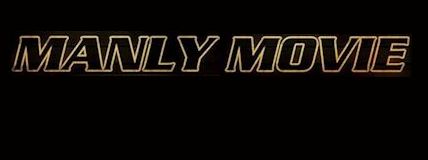
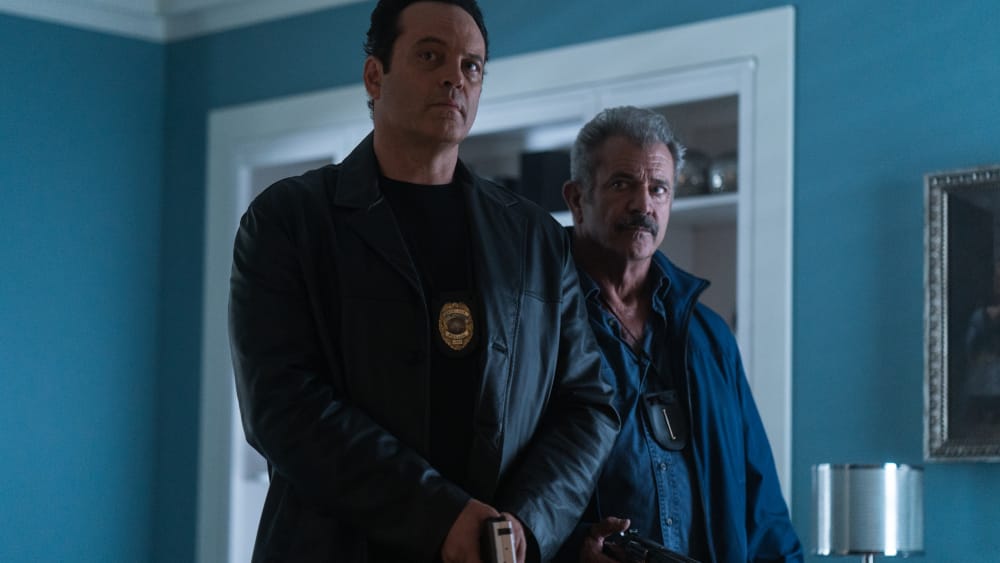
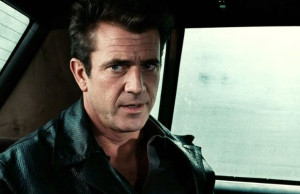
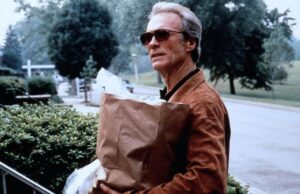
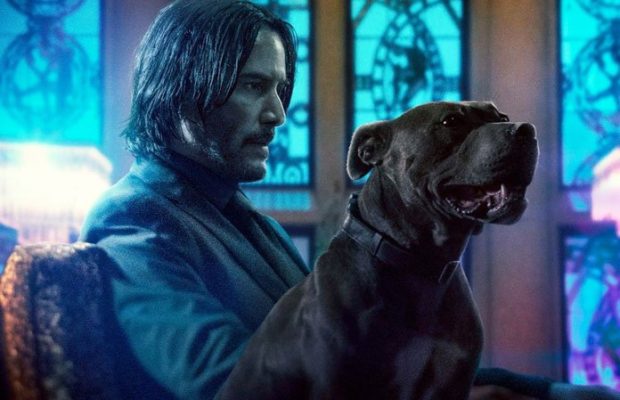




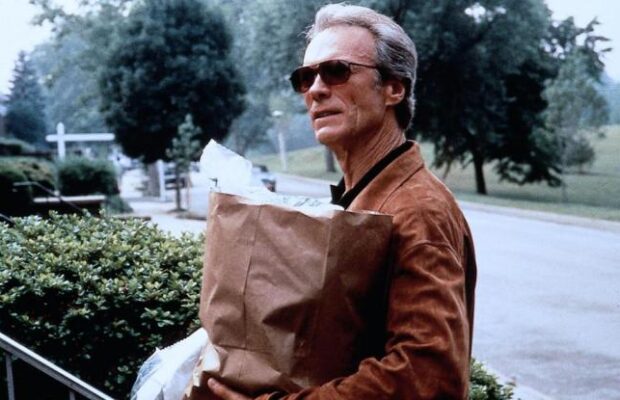




18 Comments